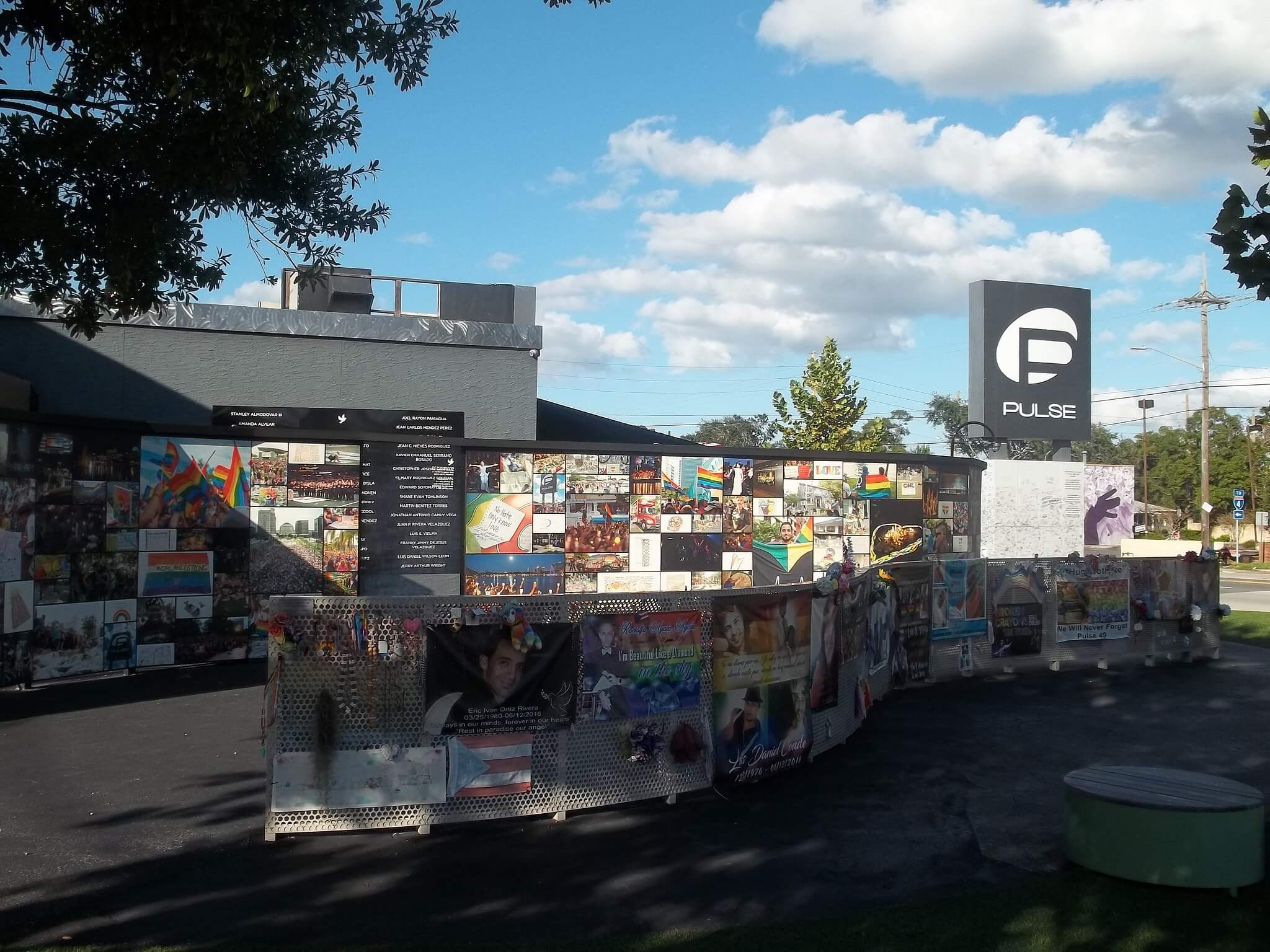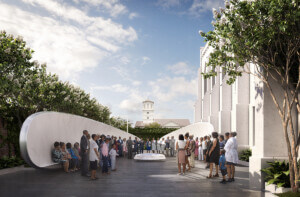Kicking off a final weekend of Pride Month, President Joe Biden signed H.R. 49 into law last Friday afternoon. The bill formally establishes the Pulse site in Orlando, Florida, as a national memorial. This paves the way for a planned memorial and museum led by the onePULSE Foundation that will commemorate the 49 angels who lost their lives during a mass shooting at the popular gay nightclub and LGBTQ+ community hub on June 12, 2016. The Pulse massacre ranks as the deadliest single act of violence against LBTBQ+ Americans and, up until the 2017 shooting in Las Vegas, was the single deadliest shooting carried out by a lone gunman in United States history. The victims, predominately Latinx, ranged in age from 18-to-50 years old.
“Just over five years ago, the Pulse nightclub, a place of acceptance and joy, became a place of unspeakable pain and loss,” said Biden in his remarks during the June 25 White House bill-signing ceremony. “And we’ll never fully recover, but we’ll remember. And we have to—what we’re going to do is what the members of Congress […] did, and enshrine in law—as a consequence of that law, enshrine, in perpetuity, literally a monument to the loss that occurred there, and an absolute determination that we’re going to deal with this every single, solitary day and make sure that we’re not in a position to see this happen again.”
Joining President Biden and First Lady Jill Biden at the ceremony were Pulse survivors, members of the Congressional Equality Caucus, and family members of Pulse victims. Photographs of all 49 victims, described by Biden as “family members, parents, friends, veterans, students, young, Black, Asian, Latino—all fellow Americans,” were displayed on digital screens during the bill signing. H.R. 49 was first introduced and sponsored in the House by Representatives Darren Soto, Val Demings, and Stephanie Murphy; Senators Rick Scott, Marco Rubio, and Alex Padilla introduced the companion bill, which passed on June 9.
Although the $45 million permanent memorial and museum at the site of the former nightclub complex on S. Orange Avenue has been pushed back (it was originally slated to open next year) and has encountered some criticism over its cost and scale, the nonprofit onePULSE Foundation vowed during the lead-up to shooting’s fifth anniversary to push forward with its plans. As for the specifics, the nonprofit envisions a tranquil and meditative site featuring a reflecting pool with a rainbow-colored basin, lush gardens and public plaza, and a spiraling open-air museum and education building rising above the site. The existing nightclub building will not be fully demolished but bisected to make way for a central cutout that will serve as a “pathway of reflection.” There is currently an interim memorial at the nightclub.

A competition jury of onePULSE community members and civic leaders who took into consideration extensive input from victims’ families, survivors, first responders, and the general public, selected the winning design concept for the Pulse National Memorial & Museum in October of 2019, conceived by a team led by French firm Coldefy & Associés with RDAI and the Orlando-based HHCP Architects. That submission beat out teams led by a bevy of top international firms including MVRDV, MASS Design Group, Studio Libeskind, Diller Scofidio + Renfro, and heneghan peng architects. The winning project team also includes French artist Xavier Veilhan, dUCKs scéno, landscape design practice Agence TER, and Laila Farah, professor of women’s and gender studies, as well as peace, justice, and conflict studies at DePaul University, who will serve as a consultant on the project.
Although no federal funds can be used to establish the memorial, which will not be part of the National Park Systems, local governments and a multitude of corporations and individuals have donated millions to the project.
“It is so meaningful to everyone here, especially the families of the 49, survivors, first responders, and all the lives affected, that our federal government recognizes the depth of the tragedy of Pulse,” said the onePULSE Foundation, led by Pulse owner Barbara Poma as founder and CEO, in a statement reacting to the bill being signed into law. “It’s also a clear and lasting message to the LGBTQ+ community that what happened at Pulse matters and will never be forgotten for future generations, and that we will always outlove hate.”
The signing of the Pulse National Memorial bill into law marked a larger and largely festive Pride event held at the White House on Friday—a resounding acknowledgment of LGBTQ+ Americans mostly absent during the previous administration. Biden also signed an executive order to advance diversity, equity, inclusion, and accessibility (DEIA) in the Federal workforce while also calling on Congress to pass the Equality Act, which would expand protections under the Civil Rights Act of 1964 to banish discrimination on the basis of sex, sexual orientation, and gender identity. The Biden administration is pushing the Equality Act at a time when Republican-led local governments are bringing forth an onslaught of what the President referred to “some of the ugliest, most un-American laws I’ve seen.”











